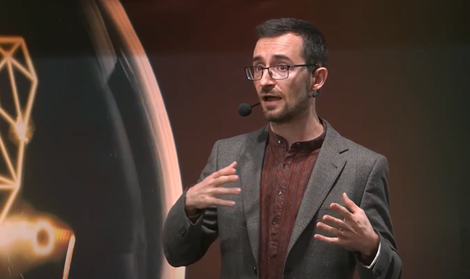Dr. Álvaro Fernández-Llamazares appointed as Lead Author of the Second IPBES Global Assessment
Dr. Álvaro Fernández-Llamazares, environmental scientist and senior researcher at the ICTA-UAB and the Department of Animal Biology, Plant Biology and Ecology (BABVE), has been selected as a Lead Author of the Second Global Assessment on Biodiversity and Ecosystem Services of the Intergovernmental Science-Policy Platform on Biodiversity and Ecosystem Services (IPBES).

Often referred to as the “IPCC for biodiversity,” the Intergovernmental Science-Policy Platform on Biodiversity and Ecosystem Services (IPBES) is the world’s leading intergovernmental body for assessing the health of nature and guiding evidence-based decisions to safeguard life on Earth. The Second IPBES Global Assessment, expected in 2028, will be one of the most ambitious scientific undertakings ever conducted on the state of life on Earth. Building on the seminal 2019 IPBES Global Assessment, which revealed that one million species face extinction and reshaped global biodiversity policy, the new report will provide the most up-to-date evidence and solutions for reversing biodiversity loss and achieving the vision of “living in harmony with nature.”
As Lead Author of Chapter 2, titled “Different knowledge systems and the role of Indigenous Peoples and local communities,” Dr. Fernández-Llamazares will contribute to advance the recognition of Indigenous and local knowledge systems within global environmental governance. The chapter will assess how diverse worldviews, values, and environmental practices of Indigenous Peoples and local communities contribute to the stewardship of nature, and how these knowledge systems can inspire transformative pathways.
“I am deeply honoured to contribute once again to the work of IPBES” said Dr. Fernández-Llamazares. “This new Global Assessment comes at a pivotal moment for humanity and the planet. Recognizing and valuing Indigenous knowledge systems is essential to building more just, inclusive, and sustainable futures for all forms of life on Earth.”
This appointment reflects Dr. Fernández-Llamazares’s long-standing involvement with IPBES and his global leadership in connecting Indigenous stewardship with biodiversity science and policy. In 2016, when he was a postdoctoral researcher at the University of Helsinki, Finland nominated him to serve as one of the 145 authors of the first IPBES Global Assessment, the most authoritative synthesis ever produced on the state of the world’s biodiversity. Nearly a decade later, his expertise has once again been sought, this time by the Government of Spain, to contribute to the second IPBES Global Assessment as a Lead Author.
For more than a decade, Dr. Fernández-Llamazares has worked hand in hand with Indigenous Peoples across the globe, blending ethnographic research, biodiversity surveys, and advanced geospatial analyses to uncover the deep connections between cultural and biological diversity. His pioneering studies have demonstrated that Indigenous territories act as some of the planet’s most effective strongholds against deforestation and biodiversity loss, providing crucial evidence that now underpins global biodiversity policy. In 2023, he received a European Research Council (ERC) Starting Grant to investigate transformations in the ethnobotanical knowledge systems of Amazonian Indigenous communities.
The first author meeting of the Second IPBES Global Assessment will take place in November 2025 at the UNESCO headquarters in Paris. The first draft of the report will open for expert review in 2026, with the final publication anticipated in 2028.
For more information about the Second IPBES Global Assessment, visit www.ipbes.net/second-global-assessment